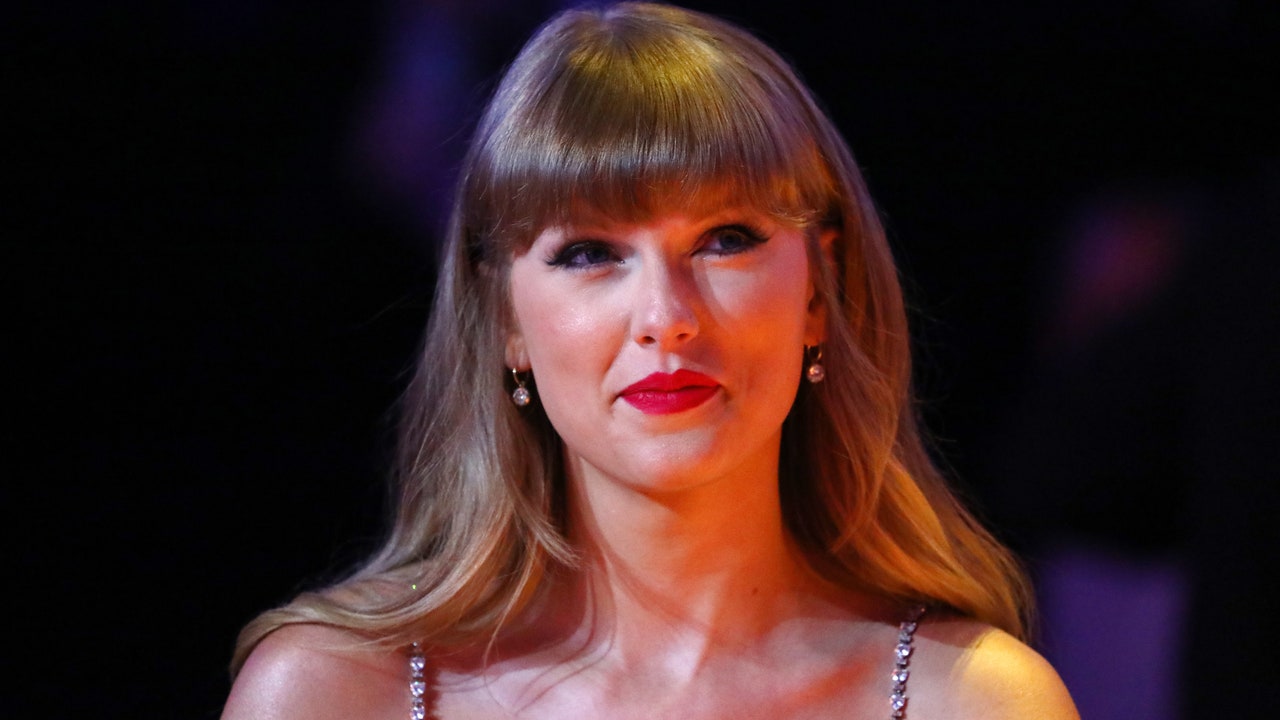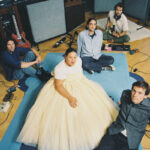Songwriting comes in its essence from an oral tradition, a practice of people coming together and making music, with words and notation changing ever so slightly each time. This ‘folk’ music is truly collaborative and folklore artist Taylor Swift is most definitely aware of and celebrates these older writing methods. In an article from Rolling Stone in July 2020, The National’s Aaron Dessner describes the process of writing part of the album with Swift and even remotely, under Covid lockdown restrictions, it was a sharing of ideas and not regimented with one person telling another what to sing. “ It was a very inspiring, exhilarating collaborative process that was almost entirely remote. Very sort of warp speed, but also something about it felt like we were going toe-to-toe and in a good pocket.”
That is the crux of the argument that has lit up Twitter since an interview with Damon Albarn and the LA Times dropped yesterday (January 24 2022). Taking a direct shot at Swift, Albarn said she “doesn’t write her own songs’, saying co-writing “doesnt’ count”. He says “I’m not hating on anybody, I’m just saying there’s a big difference between a songwriter and a songwriter who co-writes. Doesn’t mean that the outcome can’t be really great.” By the time he comes up with Billie Eilish and Finneas as a co-writing duo he can stand (apparently due to the darker – read “cooler” nature of the music) his back-peddling seems so insincere and the damage has been done.
Conversely in Rolling Stone in 2017, Damon Albarn described his process of collaborating with Lou Reed on Gorrilaz and how hard he tried to get the great to work with him and the process sounded eerily similar to Swift and Dessner’s in the way that Albarn sent Reed a large number of ideas and they sifted through them till they had something to work on that they mutually loved. That’s the polite version: “I sent him quite a few tunes, and he just said they were all shit. Finally, I did this tune, and he liked it.” (Damon Albarn, Rolling Stone, 2017)
Swift later responded to Albarn’s comments, tweeting: “@DamonAlbarn I was such a big fan of yours until I saw this.” “I write ALL my own songs. Your hot take is completely false and SO damaging. You don’t have to like my songs but it’s really fucked up to try and discredit my writing. WOW.”
This was the exchange that stoked the fires. Many musicians and producers have come to Swift’s defence in recognition of her considerable talent. Notably her two collaborators, Jack Antonoff and Aaron Dessner:
i’ve never met damon albarn and he’s never been to my studio but apparently he knows more than the rest of us about all those songs taylor writes and brings in. herb.
— jackantonoff (@jackantonoff) January 24, 2022
Not sure why you @Damonalbarn would try to discredit Taylor's brilliant songwriting but as someone who has gotten to press record around her …your statements couldn't be further from the truth…you're obviously completely clueless as to her actual writing and work process
— Aaron Dessner (@aaron_dessner) January 24, 2022
Eloquently, The Anchoress really communicated what a lot of people felt when reading Albarn’s comments: “It is a distinctly male privilege to be allowed to explore your creativity via collaboration and not have it assumed that a lack of talent or skill drove the decision. Imagine applying the same judgement to Bowie? A master collaborator that chose his comrades well at every turn.
“Damon Albarn’s attitude towards female authorship (and that IS the subtext of his nonsense) is the same reason only 2 per cent of producers are female, & why many women eventually exit the industry completely. It’s like death by a thousand paper-cuts. It’s exhausting.”
Every woman in the music industry has encountered some shade of this. If I had a £ for every time my production was attributed to some guy or I avoided doing a co-write because this is how it shakes down if you ever DARE to collaborate. It’s so YAWN. Also, men, do your research. https://t.co/XXMcCoCtlm
— The Anchoress (@The_Anchoress) January 24, 2022
Whilst most articles have concentrated on the ensuing mudslinging following Pop’s newest feud, and of course, admiring the power that one tweet from Swift to her 90 million followers wields, there is of course much more revealed by these exchanges.
The main issue here is, as The Anchoress points out the subtext to what Albarn is saying. Firstly it is absurd that Albarn dismisses collaboration as much of his own career – Blur, Gorillaz and beyond – has been co-writing and collaborating. So what Albarn is really saying – and obviously there was an instant familiarity in his words too, felt by so many other female artists – was that Swift is less legitimate than a male artist in some way for doing this. That a man who co-writes is engaging in a truly collaborative process, but a woman is subjugated to someone who is presumably, doing the work?
Then we get to the real, beautiful fury Swift causes.
Swift as a figure is a gender disrupter in a music industry that exists as an unrelenting patriarchy. Albarn’s comments were misogynistic, suggesting her music can’t be collaborative as a woman, only handed to her to be sung. Seeing as he collaborates with frequency and doesn’t question his own authorship. The real core of this comes to gender and genre and the fact that all women still exist in the patriarchy of a music industry “allowing” them to play by their rules and punishing them dearly when they try to push the system.
Swift, MIA, Kesha, Cardi B. Megan Thee Stallion, Bjork. All women who have spoken out or simply tried to make music on their own terms. Cardi B. and Megan Thee Stallion are perhaps the most ludicrous example where the music industry and society at large reeled simply at two women singing about their genitalia in the same way men have been for decades. Snoop Dogg publicly halted any progressive stance we had hoped existed in culture in one fell swoop “That should be a woman’s pride and possession,” (speaking to Central Ave about WAP). That Snoop came out and said a woman shouldn’t decide how her own body should be sung about, was a heartbreaking moment for so many of us who just hoped some tiny bit of headway had been made, especially by women like Cardi B. and Megan Thee Stallion who in the machismo-dripping world of hip-hop have had to live large and work hard to fill the trails Missy Elliot et. al blazed for them. Here we have an interesting point about genre and gender meeting, however, where collaboration is more accepted in certain genres than others, hip-hop being one of them.
Swift is relentlessly disrupting this same patriarchal music system and doing it successfully. Her success annoys people like Albarn and presumably, this is why it provokes silly comments. In a whistle-stop tour of her career, men repeatedly try to silence her: she topped charts with her first albums whilst looking wide-eyed, innocent, but who was in fact a mogul-ess in the making and it confused people. When Kanye West tried to humiliate her at the VMAs by literally taking the microphone from her hand, She didn’t let it rile her for a second. She played on. Again, in 2019 when Scooter Braun would not release her master tapes she simply re-recorded her back-catalogue and outsold herself. She is irrepressible and it annoys the status quo. Her subject matter is of love and heartbreak but she is never a victim.
Sadly these themes are not new. In a Pitchfork interview from 2015, Bjork compares male and female authorship in music: “I have nothing against Kanye West. […] With the last album he did, he got all the best beatmakers on the planet at the time to make beats for him. A lot of the time, he wasn’t even there. Yet no one would question his authorship for a second. […]For example, I did 80% of the beats on Vespertine […] Matmos came in the last two weeks and added percussion on top of the songs, […] and they are credited everywhere as having done the whole album.”
This argument is not new, and not yet resolved but we have more voices, more disrupters, and it is certainly satisfying to see just how quickly a comment like this from Albarn was swatted, like an irritating fly.




